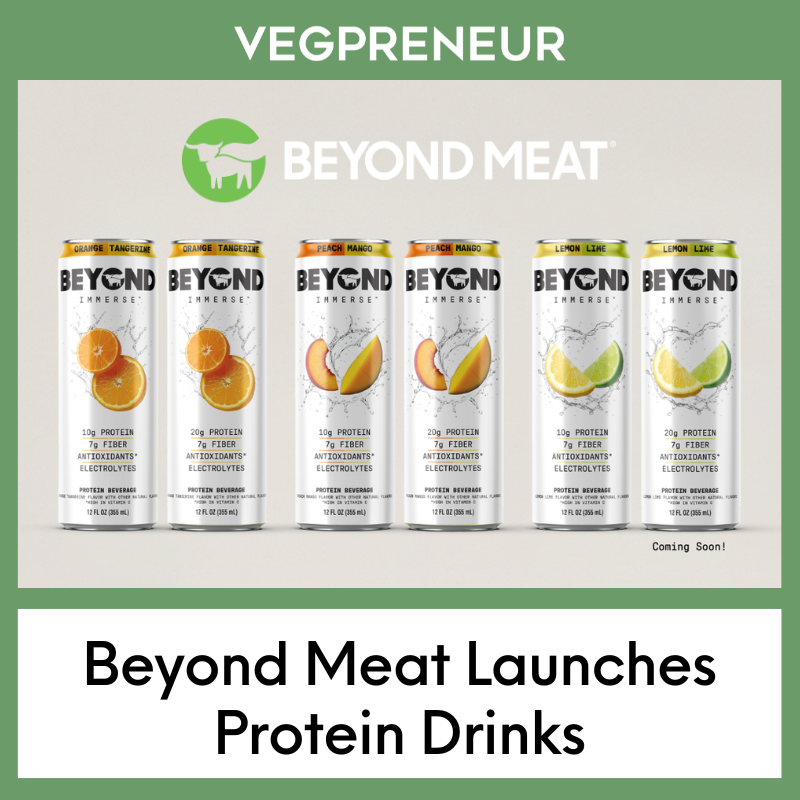Trends Plant-Based Businesses Need To Know For 2025
Written by The VEGPRENEUR Team
The plant-based sector has seen dynamic growth and transformation in recent years, and 2025 is poised to be another landmark year. Here are some key trends and predictions shaping the future of plant-based businesses:
1. Taste and Flavor Drive Choices
Despite the rise of ethical and health-conscious eating, taste remains the number one priority for consumers. In 2024, over 51% of diners cited flavor as their top consideration when choosing plant-based options at restaurants. As we move into 2025, this trend underscores the necessity for food operators and plant-based brands to focus on creating dishes and products that deliver exceptional taste. Ethical and sustainable considerations may draw consumers to plant-based options, but the flavor will keep them coming back.
This emphasis on taste also signals an opportunity for innovation in plant-based product development. Companies must go beyond simply replicating animal-based flavors and textures to crafting unique, bold, and memorable plant-based culinary experiences.
2. Global Flavors on the Rise
Cultural diversity is increasingly shaping consumer palates. The demand for globally inspired plant-based dishes is surging, with Veganuary 2025 expected to spotlight cuisines from around the world. From Middle Eastern falafel bowls and Southeast Asian curries to Latin American street food, plant-based versions of these dishes are captivating diners.
For plant-based brands and restaurants, the integration of global flavors represents an avenue for differentiation and growth. Expect to see a rise in collaborations with chefs specializing in regional cuisines to create authentic and innovative plant-based offerings.
3. Better Nutrition and Clean Labeling
Consumers are becoming more discerning about what’s in their food. In 2025, a holistic approach to nutrition will be paramount for plant-based companies. Brands are focusing on both enhancing the nutritional value of their products and simplifying ingredient lists to ensure transparency. This aligns with the growing demand for "clean label" products—those made with recognizable and minimally processed ingredients.
However, challenges persist. Inflationary pressures have driven up the price of plant-based products, which may hinder consumer adoption. Additionally, some plant-based alternatives still fall short of meeting expectations around flavor and texture authenticity. Companies must address these hurdles by delivering products that stand on their own merits and justify their price points through superior quality and nutrition.
4. Sustainability as a Core Value
Sustainability remains a critical driver of consumer choices, and plant-based businesses are uniquely positioned to lead the charge. Veganuary 2025 will continue to emphasize the environmental benefits of plant-based eating, encouraging diners to make more sustainable choices.
Brands are increasingly adopting sustainable sourcing practices and spotlighting these efforts in their marketing. Additionally, the focus on clean-label ingredients dovetails with sustainability, as minimally processed foods often have a lower environmental footprint.
5. Emerging Innovations: Plant-Based Aquatic Ingredients
Looking ahead, plant-based aquatic ingredients are emerging as a notable growth area. Whole Foods Market’s 2025 food trends report highlights the potential of ingredients like algae, seaweed, and other aquatic plants. These ingredients not only offer nutritional benefits, such as being rich in omega-3s but also align with sustainability goals due to their low resource requirements.
6. Plant-Based vs. Vegan Labelling
As the word ‘vegan’ has become more and more political, brands might want to consider using terms such as plant-based instead. This will bring in new customers who might turned off by the term ‘vegan’ for whatever reason that might be.
The Path Forward
As the plant-based sector navigates 2025, businesses must stay agile and consumer-focused. Success will hinge on addressing key challenges—from improving flavor and texture to managing inflationary pressures—while seizing opportunities in global flavors, nutritional innovation, and sustainability.
The companies that thrive will be those that not only meet consumer expectations but exceed them, delivering plant-based products and experiences that are as delicious as they are impactful.
Looking to take your business to the next level?
Become a VEGPRENEUR member today to access industry-leading events, mentors, resources, and a global community of innovators!














